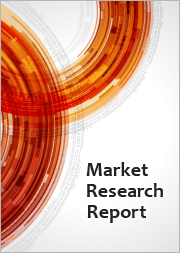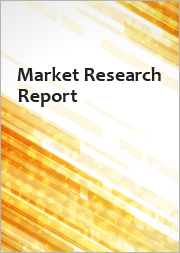
|
시장보고서
상품코드
1661220
산업용 촉매 시장 규모, 점유율, 동향, 예측 : 유형별, 원료별, 용도별, 지역별(2025-2033년)Industrial Catalyst Market Size, Share, Trends and Forecast by Type, Raw Material, Application, and Region, 2025-2033 |
||||||
산업용 촉매 시장 세계 시장 규모는 2024년 245억 2,000만 달러에 달했습니다. 향후 IMARC Group은 시장이 2033년까지 330억 7,000만 달러에 달해 2025년부터 2033년까지 3.34%의 연평균 성장률(CAGR)을 기록할 것으로 예상합니다. 현재 아시아태평양이 시장을 독점하고 있으며, 2024년 시장 점유율은 36.3%에 달합니다. 석유화학 산업의 확대, 지속적인 기술 발전, 재생에너지로의 전환이 시장을 주도하고 있습니다.
촉매란 물리적, 화학적 변화를 일으키지 않고 화학반응의 속도를 향상시키는 물질을 말합니다. 화학 공정을 강화하여 폐기물, 생산 시간, 에너지 소비, 운영 비용을 최소화합니다. 또한 배출가스 제어, 휘발성 유기화합물(VOC) 완화, 천연가스, 바이오디젤, 프로판을 포함한 개량형 석유 분획의 배합, 활성 화합물 및 중간체 합성 등 대기 환경 개선에도 도움이 됩니다. 그 결과, 산업용 촉매는 석유 정제, 석유화학 생산, 환경 보호 반응, 유기 합성, 고분자 가공, 벌크 화학 합성에 널리 사용됩니다.
산업용 촉매의 산업 동향:
석유 산업의 확대로 석유 정제 능력이 확대되면서 다양한 화학제품과 친환경 연료의 필요성이 증가하고 있습니다. 이는 역으로 시장에 긍정적인 영향을 미치고 있습니다. 또한, 발전소에서 석유 기반 제품에 대한 수요가 증가함에 따라 편리하고 신속하며 안전하고 효율적인 생산 공정을 위해 석유 정제 및 석유화학 플랜트에서 산업용 촉매의 적용이 확대되고 있습니다. 이와는 별도로 자동차 제조의 배기가스 제어 시스템에서 촉매 컨버터의 사용이 증가하고 있으며, 이는 업계 투자자들에게 유리한 성장 기회를 제공하고 있습니다. 이러한 배경에는 환경에 대한 관심이 높아지고 배출가스 수준을 제어하기 위한 엄격한 정부 규제가 시행되고 있는 것도 한 몫을 하고 있습니다. 또한, 제약 및 식품 및 음료(F&B) 산업에서 촉매 절차의 강화를 지원하는 나노 촉매의 개발은 시장 전망을 밝게 하고 있습니다. 또한, 세계 시장 진출을 확대하기 위한 업계 주요 업체들 간의 전략적 제휴와 운영 비용을 최소화하면서 촉매 효율을 높이기 위한 연구개발(R&D) 활동에 대한 투자 증가가 시장 성장을 촉진하고 있습니다.
본 보고서에서 다루는 주요 질문
- 산업용 촉매란 무엇인가?
- 산업용 촉매 시장의 시장 규모는?
- 2025-2033년 세계 산업용 촉매 시장의 예상 성장률은?
- 세계 산업용 촉매 시장을 이끄는 주요 요인은 무엇인가?
- 세계 산업용 촉매 시장의 유형별 주요 부문은 무엇인가?
- 세계 산업용 촉매 시장의 지역별 주요 부문은 소재별로 어떻게 나뉘는가?
- 세계 산업용 촉매 시장의 주요 용도별 시장 부문은?
- 세계 산업용 촉매 시장의 주요 지역은?
- 세계 산업용 촉매 시장의 주요 기업은?
목차
제1장 서문
제2장 조사 범위와 조사 방법
- 조사 목적
- 이해관계자
- 데이터 소스
- 1차 정보
- 2차 정보
- 시장 추정
- 상향식 접근
- 하향식 접근
- 조사 방법
제3장 주요 요약
제4장 소개
- 개요
- 프로퍼티
- 주요 업계 동향
제5장 세계의 산업용 촉매 시장
- 시장 개요
- 시장 실적
- COVID-19의 영향
- 시장 내역 : 유형별
- 시장 내역 : 원료별
- 시장 내역 : 지역별
- 시장 내역 : 용도별
- 시장 예측
- SWOT 분석
- 개요
- 강점
- 약점
- 기회
- 위협
- 밸류체인 분석
- 개요
- 연구개발
- 원자재 조달
- 제조
- 마케팅
- 유통
- 최종 용도
- Porter's Five Forces 분석
- 개요
- 구매자의 교섭력
- 공급 기업의 교섭력
- 경쟁 정도
- 신규 참여업체의 위협
- 대체품의 위협
제6장 시장 내역 : 유형별
- 불균일 촉매
- 시장 동향
- 시장 예측
- 균일 촉매
- 시장 동향
- 시장 예측
- 생체 촉매
- 시장 동향
- 시장 예측
제7장 시장 내역 : 원료별
- 혼합 촉매
- 시장 동향
- 시장 예측
- 산화물 촉매
- 시장 동향
- 시장 예측
- 금속 촉매
- 시장 동향
- 시장 예측
- 황화물 촉매
- 시장 동향
- 시장 예측
- 유기금속 촉매
- 시장 동향
- 시장 예측
제8장 시장 내역 : 용도별
- 정유소
- 시장 동향
- 시장 예측
- 화학 합성
- 시장 동향
- 시장 예측
- 석유화학제품
- 시장 동향
- 시장 예측
- 기타
- 시장 동향
- 시장 예측
제9장 시장 내역 : 지역별
- 아시아태평양
- 북미
- 유럽
- 라틴아메리카
- 중동 및 아프리카
제10장 수입과 수출
- 수입 : 주요 국가별
- 수출 : 주요 국가별
제11장 산업용 촉매 제조 공정
- 제품 개요
- 원자재 요건
- 제조 공정
- 핵심성공요인과 위험요인
제12장 경쟁 구도
- 시장 구조
- 주요 기업
- 주요 기업 개요
- Albemarle Corporation
- Arkema S.A.
- BASF Corporation
- Clariant Ag
- Evonik Industries Ag
- Exxon Mobil Chemical Corporation
- AkzoNobel N.V.
- Chevron Phillips Chemical Company
- The DOW Chemical Company
The global industrial catalyst market size reached USD 24.52 Billion in 2024. Looking forward, IMARC Group expects the market to reach USD 33.07 Billion by 2033, exhibiting a growth rate (CAGR) of 3.34% during 2025-2033. Asia Pacific currently dominates the market with a significant market share of 36.3% in 2024. The expanding petrochemical industries, ongoing technological advancements, and the shift towards renewable energy are primarily driving the market.
A catalyst refers to a substance that improves the rate of a chemical reaction without undergoing any physical or chemical change. It enhances chemical processes and minimizes waste, production time, energy consumption, and operational cost. It assists in enhancing the air quality by controlling emissions, mitigating volatile organic compounds (VOCs), formulating improved oil fractions, including natural gas, biodiesel, and propane, and synthesizing active compounds and intermediates. As a result, industrial catalysts are widely used in petroleum refining, petrochemical production, environment protection reactions, organic synthesis, polymer processing, and bulk chemical synthesis.
Industrial Catalyst Industry Trends:
The growing expansion of the petroleum industry is resulting in the rising establishment of petrol refining capacities and the need for various chemical products and eco-friendly fuels. This, in turn, is positively influencing the market. In addition, the escalating demand for petroleum-based products from power generation plants is expanding the applications of industrial catalysts in petroleum refining and petrochemical plants for a convenient, quicker, safer, and more efficient production process. Apart from this, the rising use of catalytic converters in automobile manufacturing emission control systems is offering lucrative growth opportunities to industry investors. This can also be attributed to increasing environmental concerns and the implementation of stringent government regulations for controlling emission levels. Furthermore, the development of nano-catalysts that assist in enhancing catalytic procedures in the pharmaceutical and food and beverage (F&B) industries are creating a positive market outlook. Moreover, strategic collaborations amongst leading industry players to expand their global market reach, along with increasing investments in research and development (R&D) activities to enhance catalysts efficiency while minimizing operational costs, are impelling the market growth.
Key Market Segmentation:
Breakup by Type:
- Heterogeneous Catalysts
- Homogeneous Catalysts
- Biocatalysts
Heterogeneous catalysts exhibit a clear dominance in the market due to their robustness and lower operational cost.
Breakup by Raw Material:
- Mixed
- Oxide
- Metallic
- Sulfide
- Organometallic
Mixed catalysts account for the majority of the global industrial catalyst market share as they are extensively used in the production of selective oxidation catalysts, hydrogen, and electrocatalysis for solid oxide fuel cells.
Breakup by Application:
- Petroleum Refinery
- Chemical Synthesis
- Petrochemicals
- Others
Petroleum refineries presently hold the largest market share due to the increasing demand for petroleum products across the globe.
- Asia Pacific
- North America
- Europe
- Middle East and Africa
- Latin America
The Asia Pacific currently enjoys the leading position in the market due to the significant rise in petroleum refining and the increasing use of catalysts in various industries.
Competitive Landscape:
The competitive landscape of the market has been analyzed in the report, along with the detailed profiles of the major players operating in the industry. Some of these players are Albemarle Corporation, Arkema S.A., BASF SE, Clariant AG, Evonik Industries AG, Exxon Mobil Chemical Co, Akzo Nobel N.V., Chevron Phillips Chemical Company, LLC, and The DOW Chemical Company.
Key Questions Answered in This Report
- 1.What is an industrial catalyst?
- 2.How big is the industrial catalyst market?
- 3.What is the expected growth rate of the global/regional industrial catalyst market during 2025-2033?
- 4.What are the key factors driving the global/regional industrial catalyst market?
- 5.What is the leading segment of the global/regional industrial catalyst market based on type?
- 6.What is the leading segment of the global industrial catalyst market based on material?
- 7.What is the leading segment of the global industrial catalyst market based on application?
- 8.What are the key regions in the global industrial catalyst market?
- 9.Who are the key players/companies in the global industrial catalyst market?
Table of Contents
1 Preface
2 Scope and Methodology
- 2.1 Objectives of the Study
- 2.2 Stakeholders
- 2.3 Data Sources
- 2.3.1 Primary Sources
- 2.3.2 Secondary Sources
- 2.4 Market Estimation
- 2.4.1 Bottom-Up Approach
- 2.4.2 Top-Down Approach
- 2.5 Forecasting Methodology
3 Executive Summary
4 Introduction
- 4.1 Overview
- 4.2 Properties
- 4.3 Key Industry Trends
5 Global Industrial Catalyst Market
- 5.1 Market Overview
- 5.2 Market Performance
- 5.3 Impact of COVID-19
- 5.4 Market Breakup by Type
- 5.5 Market Breakup by Raw Material
- 5.6 Market Breakup by Region
- 5.7 Market Breakup by Application
- 5.8 Market Forecast
- 5.9 SWOT Analysis
- 5.9.1 Overview
- 5.9.2 Strengths
- 5.9.3 Weaknesses
- 5.9.4 Opportunities
- 5.9.5 Threats
- 5.10 Value Chain Analysis
- 5.10.1 Overview
- 5.10.2 Research and Development
- 5.10.3 Raw Material Procurement
- 5.10.4 Manufacturing
- 5.10.5 Marketing
- 5.10.6 Distribution
- 5.10.7 End-Use
- 5.11 Porters Five Forces Analysis
- 5.11.1 Overview
- 5.11.2 Bargaining Power of Buyers
- 5.11.3 Bargaining Power of Suppliers
- 5.11.4 Degree of Competition
- 5.11.5 Threat of New Entrants
- 5.11.6 Threat of Substitutes
6 Market Breakup by Type
- 6.1 Heterogenous Catalysts
- 6.1.1 Market Trends
- 6.1.2 Market Forecast
- 6.2 Homogeneous Catalysts
- 6.2.1 Market Trends
- 6.2.2 Market Forecast
- 6.3 Biocatalysts
- 6.3.1 Market Trends
- 6.3.2 Market Forecast
7 Market Breakup by Raw Material
- 7.1 Mixed Catalysts
- 7.1.1 Market Trends
- 7.1.2 Market Forecast
- 7.2 Oxide Catalysts
- 7.2.1 Market Trends
- 7.2.2 Market Forecast
- 7.3 Metallic Catalysts
- 7.3.1 Market Trends
- 7.3.2 Market Forecast
- 7.4 Sulphide Catalysts
- 7.4.1 Market Trends
- 7.4.2 Market Forecast
- 7.5 Organometallic Catalysts
- 7.5.1 Market Trends
- 7.5.2 Market Forecast
8 Market Breakup by Application
- 8.1 Petroleum Refinery
- 8.1.1 Market Trends
- 8.1.2 Market Forecast
- 8.2 Chemical Synthesis
- 8.2.1 Market Trends
- 8.2.2 Market Forecast
- 8.3 Petrochemicals
- 8.3.1 Market Trends
- 8.3.2 Market Forecast
- 8.4 Others
- 8.4.1 Market Trends
- 8.4.2 Market Forecast
9 Market Breakup by Region
- 9.1 North America
- 9.1.1 Market Trends
- 9.1.2 Market Forecast
- 9.2 Europe
- 9.2.1 Market Trends
- 9.2.2 Market Forecast
- 9.3 Asia Pacific
- 9.3.1 Market Trends
- 9.3.2 Market Forecast
- 9.4 Latin America
- 9.4.1 Market Trends
- 9.4.2 Market Forecast
- 9.5 Middle East and Africa
- 9.5.1 Market Trends
- 9.5.2 Market Forecast
10 Imports and Exports
- 10.1 Imports by Major Countries
- 10.2 Exports by Major Countries
11 Industrial Catalyst Manufacturing Process
- 11.1 Product Overview
- 11.2 Raw Material Requirements
- 11.3 Manufacturing Process
- 11.4 Key Success and Risk Factors
12 Competitive Landscape
- 12.1 Market Structure
- 12.2 Key Players
- 12.3 Profiles of Key Players
- 12.3.1 Albemarle Corporation
- 12.3.2 Arkema S.A.
- 12.3.3 BASF Corporation
- 12.3.4 Clariant Ag
- 12.3.5 Evonik Industries Ag
- 12.3.6 Exxon Mobil Chemical Corporation
- 12.3.7 AkzoNobel N.V.
- 12.3.8 Chevron Phillips Chemical Company
- 12.3.9 The DOW Chemical Company















